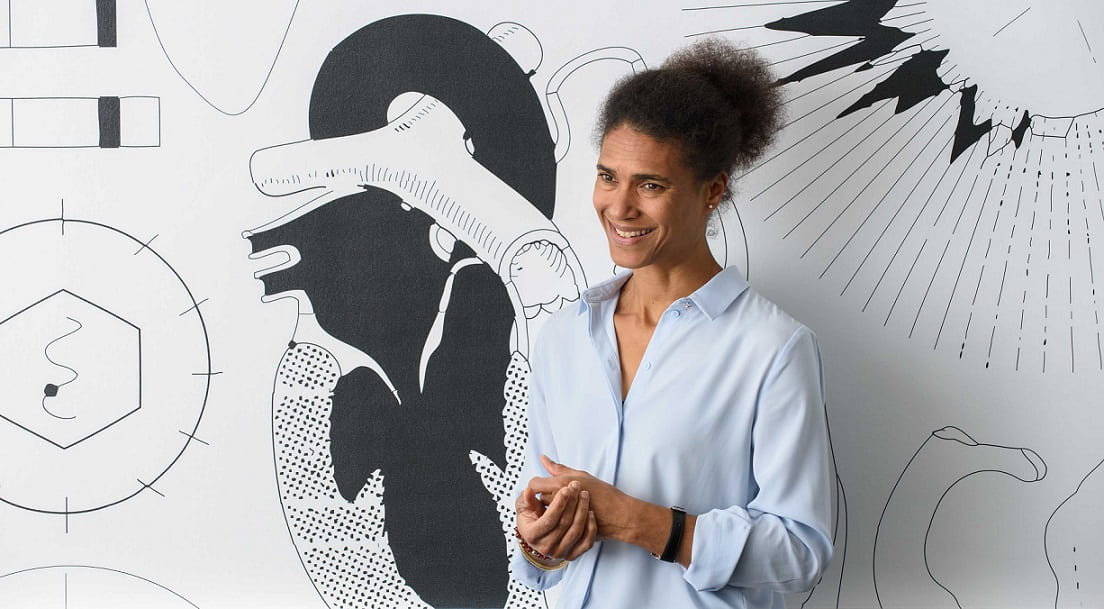 Dr Isabella Aboderin (BSc 1992, PhD 2001), the Perivoli Chair in Africa Research and Partnerships, sets out how this new role will have a far-reaching impact.
Dr Isabella Aboderin (BSc 1992, PhD 2001), the Perivoli Chair in Africa Research and Partnerships, sets out how this new role will have a far-reaching impact.
I first came to Bristol as an undergraduate to take a BSc course in Cellular and Molecular Pathology, and later returned to do my PhD in Social Policy Studies. Bristol had a great reputation for the work I wanted to undertake, as well as a reputation for being a great city to live in. It’s wonderful to be back here to take up the position as the new Perivoli Chair.
I received a scholarship to do my PhD at Bristol. This great opportunity allowed me to shape an agenda in a field that was only emergent at the time – and my research has already had an impact, changing perspectives and mindsets, in both policy and academic spheres. The narrative at the time
(in 2000) was that Africa was a ‘young’ continent and that issues of ageing didn’t matter. My PhD research looked at the social change and decline in family support for older people in Ghana, at a time when not many centres were considering ageing in Africa.
‘We need fairer intellectual endeavour between the Western world and the African continent.’
I enjoyed the openness and collaborative spirit at Bristol during my PhD and I look forward to more of the same in my new position. Why is this role important for Bristol? Well, there is already a large body of Africa research and engagement at the University, but it’s dispersed and lacks a platform for synergy, cross-fertilisation and joint, perhaps more focused, work. The Perivoli Chair and the Perivoli Africa Research Centre will offer such a platform. They will help to forge strategic partnerships and programmes of work that are both policy and scientifically relevant and that build on the areas of expertise that are already unique to Bristol.
The Centre’s approach will also seek to be mindful of, and challenge, the all-too-common unequal power dynamics in UK-Africa research partnerships. For example, who decides the research questions or theoretical frameworks to be used? We need to move toward more deliberate approaches to decolonise the collaborative research we do, opening up to critique and direction from the African continent and pursuing more comparative work.
We can build a coherent programme of work that speaks to core development aspirations in Sub-Saharan Africa and that engages the most relevant policy and civil society actors at regional and sub-regional levels as well as globally. There is much potential, I think, for Bristol to cement its place as a leader in this area of research.
Prior to taking up this position Dr Aboderin held a dual appointment as a Senior Research Scientist and Head of the Programme on Ageing and Development at the African Population and Health Research Centre (APHRC), Nairobi, and was Associate Professor of Gerontology at the University of Southampton.
The Perivoli Trust has funded the Perivoli Chair in Africa Research and Partnership, which is aimed at furthering interdisciplinary research into education, health, sustainable agriculture, social and governance issues in Africa as well as deepening relationships between the University and international agencies, governments and research institutions in the continent. It will build on and add value to the University’s existing strengths across a broad range of disciplines and play a key role in the establishment and leadership of the new Perivoli Africa Research Centre. The new research centre will be a UK hub for collaborative research in Africa, to share expertise and empower innovation to achieve real and impactful change.
